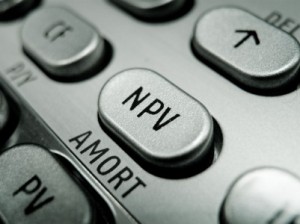By: Michael Powers
 Over the past 6 years, the residential mortgage crisis has been widely publicized. As soon as the market crashed, the Obama Administration came out with the Making Home Affordable programs, and lenders followed suit by creating their own proprietary loan modification programs. These programs gave rise to service providers ranging from “loan modification” companies to attorneys. Unfortunately, the crisis also attracted opportunists looking to prey upon desperate homeowners. In response, legislatures and regulatory agencies were quick to respond by passing consumer protection laws, such as the Federal Trade Commission’s (FTC) MARS (Mortgage Assistance Relief Services) rules, for example. Once all the dust had settled, it became clear that a homeowner’s best bet was to hire an experienced mortgage attorney.
Over the past 6 years, the residential mortgage crisis has been widely publicized. As soon as the market crashed, the Obama Administration came out with the Making Home Affordable programs, and lenders followed suit by creating their own proprietary loan modification programs. These programs gave rise to service providers ranging from “loan modification” companies to attorneys. Unfortunately, the crisis also attracted opportunists looking to prey upon desperate homeowners. In response, legislatures and regulatory agencies were quick to respond by passing consumer protection laws, such as the Federal Trade Commission’s (FTC) MARS (Mortgage Assistance Relief Services) rules, for example. Once all the dust had settled, it became clear that a homeowner’s best bet was to hire an experienced mortgage attorney.
 But, what about commercial mortgage loans? While the commercial loans originated during the mid 2000’s did not have all of the defects of the sub-prime residential market, they became just as unaffordable when the recession hit. General economic woes caused a chain reaction of rising delinquency and vacancy rates, that left some landlords struggling with the mortgages on their commercial properties. Unfortunately, there were no government or other “loan modification” programs for commercial mortgages, and troubled commercial property owners had no obvious forms of assistance to turn to.
But, what about commercial mortgage loans? While the commercial loans originated during the mid 2000’s did not have all of the defects of the sub-prime residential market, they became just as unaffordable when the recession hit. General economic woes caused a chain reaction of rising delinquency and vacancy rates, that left some landlords struggling with the mortgages on their commercial properties. Unfortunately, there were no government or other “loan modification” programs for commercial mortgages, and troubled commercial property owners had no obvious forms of assistance to turn to.
These days, there is ample assistance available to commercial property owners. However, with the lack of defined programs, it can be difficult to find someone who is both competent and trustworthy to handle a troubled commercial loan. Here are 5 reasons that hiring an attorney with specific experience in commercial loans is your best bet.
Speak to a Commercial Loan Attorney!
► ► ►Schedule Your Free Consultation! ◄ ◄ ◄
1. Attorneys are more capable.
 Simply put, an attorney has a greater ability to resolve a troubled commercial mortgage than anyone else. An attorney can sue your lender for any legal violations, or use those violations as leverage to renegotiate the terms of your loan. They can also file for injunctions to stop foreclosure sales and auctions. Conversely, a loan modification company can only “ask”. They are entirely at the mercy of the lender and have no ability to deploy legal tactics and strategies when necessary. This means that they are completely powerless when dealing with a difficult lender. In addition, the vast majority of loan modification companies specialize in residential mortgages, and are less familiar with the laws that govern commercial loans.
Simply put, an attorney has a greater ability to resolve a troubled commercial mortgage than anyone else. An attorney can sue your lender for any legal violations, or use those violations as leverage to renegotiate the terms of your loan. They can also file for injunctions to stop foreclosure sales and auctions. Conversely, a loan modification company can only “ask”. They are entirely at the mercy of the lender and have no ability to deploy legal tactics and strategies when necessary. This means that they are completely powerless when dealing with a difficult lender. In addition, the vast majority of loan modification companies specialize in residential mortgages, and are less familiar with the laws that govern commercial loans.
2. Attorneys are held to a higher standard.
While loan modification companies are heavily regulated in the residential loan modification industry, they are not governed by the same rules when it comes to commercial loans. First and foremost, they are not subject to the FTC’s MARS rules, which is really the standard for governing loan modification companies. Attorneys, on the other hand, are governed by a strict code of ethics and, in addition to any applicable consumer protection laws, are subject to the rules of their State Bar. This means that any misconduct could jeopardize their license and ability to practice law.
3. Attorneys can represent you in court.
 If you are facing a foreclosure in a judicial (in-court) foreclosure state, you need an attorney to effectively represent your interests. In these states, foreclosures start with the filing of a complaint, which must be answered in order to prevent a default judgment. In short, hiring an attorney to deal with a troubled commercial mortgage in one of these states is almost necessary. However, even if you are not in a judicial foreclosure state, having an attorney means that your attorney can use legal measures available through the court system that loan modification companies cannot. For example, if there are legal issues surrounding the loan, an attorney can file a lawsuit and application for a restraining order against a foreclosure sale or auction.
If you are facing a foreclosure in a judicial (in-court) foreclosure state, you need an attorney to effectively represent your interests. In these states, foreclosures start with the filing of a complaint, which must be answered in order to prevent a default judgment. In short, hiring an attorney to deal with a troubled commercial mortgage in one of these states is almost necessary. However, even if you are not in a judicial foreclosure state, having an attorney means that your attorney can use legal measures available through the court system that loan modification companies cannot. For example, if there are legal issues surrounding the loan, an attorney can file a lawsuit and application for a restraining order against a foreclosure sale or auction.
4. Attorneys are taken more seriously.
At this point, there are years of statistics supporting the fact that parties represented by attorneys have had greater success negotiating loan modifications than parties not represented by attorneys. Though constantly changing location and often difficult to locate, statistics on the Making Home Affordable website show a dramatic difference in this regard. You should look for the “MHA Report Card” to find the most recent statics. When an attorney is representing a property owner, the calls get returned more quickly and lenders are generally more responsive. In addition, attorneys are required to keep meticulous records of their actions, and a court is more likely to accept the word of an attorney over a non-attorney when it comes to facts in dispute.
5. There are no programs for commercial mortgage loans.
 Unlike residential mortgages, there are no known “workout” or “modification” programs for commercial loans. For residential mortgages, there are Federal, State and local programs, as well as “in-house”, proprietary programs created by most residential mortgage lenders and servicers. These programs have specific guidelines, and there is often no difference between the application that would be submitted by an attorney or loan modification company on behalf of a homeowner. Conversely, there are no existing programs for commercial loans, and any workout is entirely “organic”, or created on a case by case basis. The key to a successful commercial loan workout is simply convincing a lender that accepting a modification is more financially advantageous than a foreclosure. While both an attorney and a loan modification company can attempt to make a convincing presentation towards this end, an attorney’s ability to add legal leverage and potential exposure to the equation can greatly affect a lender’s final analysis.
Unlike residential mortgages, there are no known “workout” or “modification” programs for commercial loans. For residential mortgages, there are Federal, State and local programs, as well as “in-house”, proprietary programs created by most residential mortgage lenders and servicers. These programs have specific guidelines, and there is often no difference between the application that would be submitted by an attorney or loan modification company on behalf of a homeowner. Conversely, there are no existing programs for commercial loans, and any workout is entirely “organic”, or created on a case by case basis. The key to a successful commercial loan workout is simply convincing a lender that accepting a modification is more financially advantageous than a foreclosure. While both an attorney and a loan modification company can attempt to make a convincing presentation towards this end, an attorney’s ability to add legal leverage and potential exposure to the equation can greatly affect a lender’s final analysis.
